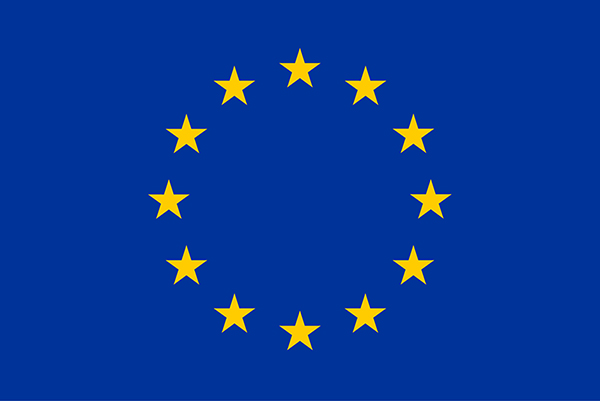Summary:
This first MED-GOLD webinar was moderated by Marta Bruno Soares (MBS), researcher at the University of Leeds and MED-GOLD partner. Antonio Graça (AG), director of research and development from the leading wine company Sogrape Vinhos based in Portugal, presented his lecture titled The future of wine. He described the notion of terroir in the wine business as a key issue of its value and explained how its different aspects have evolved along history until our days. Displaying recent charts of global temperature evolution and the correlated effects on grape quality, not forgetting the occurrence of recent extreme damaging events, he highlighted the confusion of nowaday’s grape growers, threatened by a quickly changing environment and overwhelmed by an exponentially growing amount of data, information and tools that make their activity hardly manageable. AG then, introduced the MED-GOLD project, explaining what is a climate service and what is the expected climate service output from the project as well as the added-value promise they hold for the grape and wine sector.
The next speaker was Dr Rita Cardoso (RC), a researcher from Instituto Dom Luiz in Lisboa, who presented the lecture titled Climate Change in Portugal: high-resolution projections. RC explained what are global and regional climate models, detailing how they are assessed in terms of performance and how the consideration of both natural and anthropogenic forcings accurately describes the evolution of global climate in the last 100 years. She presented as examples the EURO-CORDEX regional models and explained how they compare to the WRF-IDL regional model for Iberia that has a spatial resolution of 9 km. She then presented the results of her team’s work published in 2018, detailing high-resolution comparisons between seasonal average temperature anomalies over Portugal from 1971-2000 with 2071-2100. Of particular interest were the projections regarding the number of heatwaves and their duration, bound to increase several-fold between the two periods and the predicted change in precipitation levels and yearly patterns.
The last speaker was Prof Dr João Santos (JS), a researcher from Universidade de Trás-os-Montes e Alto Douro in Vila Real, who presented Some studies on the influence of atmospheric conditions over the grapevine. Drawing from data from the high-resolution (1 km) dataset created by his team for Portugal, he showed an analysis of the historical evolution of the aridity and thermicity indices for the period 1950-2000 compared to predictions for the period 2041-2060. He presented an analysis of bioclimatic indices (Huglin, dryness and hydrothermal) indicating strong impacts depending on grapevine varieties. JS showed a new way of calculating the thermal load as a function of the significant thermal thresholds for the grapevine (Growing Degree-Hours) and with much higher temporal resolution, allowing for greater detail in predictions and higher accuracy in matching varieties to sites. Applying this new index, he has grouped 44 grapevine varieties according to their thermal needs for ripening, supplying important information to assist decision-making when choosing varieties for plantation. He finalized his presentation by calling the attention to several potential measures for adaptation as a function of climate impact change and implementation time, giving as an example the mitigating effect the use of irrigation may have to counter climate-driven yield losses. JS announced the launch event of the project Clim4Vitis on Feb 19, 2019, in Vila Real.
Q&A
Inês Campos asked JS about adaptation measures, namely the use of renewable energy in vineyards, citing the example of a French vineyard where solar panels are used to generate energy above the grapevines while providing shade and avoiding sunburn in heat intensive areas. JS was unaware of such a use for solar panels in vineyards but indicated that the use of trees inside the vineyard block can provide shade. He added that the use of solar energy is a positive factor as it does not produce GHG and therefore contributes to mitigate climate change, namely using that energy to power irrigation systems. He also noted that the main problem, however is the scarcity of water, the costs of setting and operating irrigation systems and the danger of competition between agricultural and human use for the available water resources.
André Galante asked if the increase in aridity could be compensated by cover crops in vineyards. AG answered that it would provide a countering effect but it would be negligible in the face of the magnitude of the change forecasted by the model presented by JS and indicated irrigation, good soil management, erosion control as complementary measures.
Discussion panel
Topic: How may climate services generate value for the grape and wine sector of the Mediterranean region
AG focused the value of climate services by obtaining better timeliness in addressing mitigation measures and protection against extreme climate events. He added that value would also be added by higher geographical resolution, allowing for process managers to address the specific situation of their own properties. RC stressed as factors of value the quality of the forecasts and the conversion of deterministic forecasts into probabilistic forecasts. JS stressed the danger of extrapolating low-resolution predictions for local application, thus favouring the importance of having high-resolution products that allow for efficient and consequential decision making in terms of mitigation and adaptation.
DOWNLOAD THE PRESENTATION (41 Mb)
More information
Further discussion on the webinar topic (including additional questions that were not answered during the webinar) can be found on the MED-GOLD online forum. Feel free to add other questions!
For more information:
- Join the MED-GOLD community!
- Visit our website: www.med-gold.eu
- Contact us! communication@med-gold.eu
- Follow us on twitter! @medgold_H2020

